#heyreags
Text
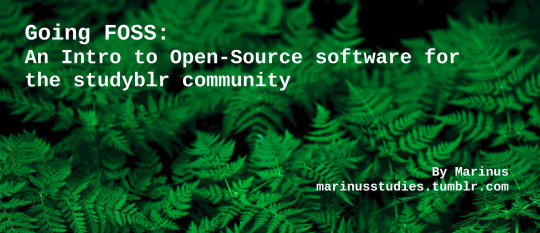
Going FOSS: An Intro to Open-Source software for studyblr (and also some privacy related bits)
Source for Header Image
Intro & attempt at TLDR
Hey everyone! Today I’d like to tell y’all something about Open Source Software, and also Why this should matter to you! This’ll probably be the first post of a series I intend to do, because I believe the Studyblr community, even the non-nerd folks, could really benefit from switching some things out in their digital environment. Since this is a long post, I attempted to summarise it below, please do read on if you have the spoons tho!
TLDR?
FOSS stands for “Free and Open Source Software” the “free” part doesn’t necessarily mean it’s free as in free pizza, but mostly means free as in freedom.
There’s a humongous amount of variants on this concept, but the core of FOSS specifically is the four freedoms:
1. To run the program however you want and for whatever you want
2. To study how the program works and to change it in whatever way you want
3. To be able to share it with whomever you feel like
4. To be able to share your modified version with whomever you want
There’s a whole host of software licenses built around these concepts, you can check those out at the Open Source Initiative website, or at Choose A License. Both have a good summary of what they all stand for.
Open Source software is used for a lot of products, nearly every single webserver is an Apache Linux server, Google chrome is built on top of their open source chromium (google is still the devil, but y’know, it’s an example), and even deep deep down, Apple computers run on top of a Linux Kernel. Many more can be listed, but I won’t do that otherwise this isn’t a TLDR anymore.
Now, Why is this important for you? The Open Source Initiative summed it up real nicely already, but heres a short paraphrase:
Control & Security. If software is open source then you can check if it really works the way it does, and to make sure it’s not spying on you. Even if you don’t have the skills for it, someone else who does will be able to check. Also if you don’t like how something works in a program, then you’ll be able to change it or find someone else’s changed version that you like more.
Training. People who want to learn programming can use the code to see what makes programs tick, as well as use it as a guide for their own projects.
Stability. Because everything’s out in the open, that means someone else can take up maintaining a project or make a successor of it, in case the original developers suddenly quit working on it. This is especially important when it’s software that’s absolutely critical for certain tasks.
Community. It’s not just one program. It’s a lot of people working together to make, test, use, and promote a project they really love. Lots of projects end up with a dedicated fanbase that helps support the developers in continuing to work on the software.
I’d like to add one more tho: Privacy, which ties in a lot with the security part. Nowadays with protests going on and everything being online due to the pandemic, folks have been and will be confronted much more with the impact of privacy, and lack thereof. Open Source software means that if any company or group tries to spy on you, then you and anyone who feels like checking, will be able to know and take action on it. Here’s the EFF page on privacy and why it should matter to you
If that got your attention then read on past the readmore button! Or, if nothing else maybe check out the Free and Open Source Software portal on Wikipedia? Or maybe the resources page of the Open Source Initiative?
Terminology: Let’s get that out of the way first
Open Source: The source code that a program is made up of is freely accessible, anyone can look at it and check whether it works well enough or to make sure it doesn’t spy on you.
FOSS: Free and Open Source Software. This doesn’t mean that you don’t need to pay for it, it’s free as in freedom and free speech, not free pizza.
There are four freedoms associated with FOSS:
The freedom to run the program as you wish, for any purpose (freedom 0).
The freedom to study how the program works, and change it so it does your computing as you wish (freedom 1). Access to the source code is a precondition for this.
The freedom to redistribute copies so you can help others (freedom 2).
The freedom to distribute copies of your modified versions to others (freedom 3).
By doing this you can give the whole community a chance to benefit from your changes. Access to the source code is a precondition for this.
FLOSS: Free and Libre Open Source Software. This time it is “free” as in free pizza. The “libre” is french for “free” as in freedom.
GRATIS: Sometimes people use this word to mean “free” as in free pizza. Usually alongside “FOSS”
Licenses : A license is something that tells others what they can or cannot do with your code. Licenses also apply to art and literature, those are copyright licenses. There are many different software licenses and I’m not going to be able to list them all.
The biggest players however are:
Apache License 2.0
The 3-Clause BSD License
GNU General Public License (also known as GPL)
MIT License
Mozilla Public License 2.0
There’s even more and you can find a list of them Here on the Open Source Initiative site There’s so many licenses that there’s even a Choose A License site, where you can pick a license depending on what you want it to achieve
Who and/or what even uses open source software?
You don’t need to be some nerd to benefit from Open Source software, in fact, you’re using open source software right now! The biggest example is the whole entire internet. Websites are stored on servers, and nearly every single webserver is a Linux server. The second biggest browser Firefox is open source, and even google chrome is built on top of “chromium” an open source base. If you dont use an iPhone, then you’re probably on an Android phone. Guess what? Android is part of the Android Open Source Project, which is then built upon a GNU/Linux base. All Open Source. Chromebooks? Built on top of a Linux kernel (like a non-patented engine you could put into any motor vehicle you’d like). Heck, even Apple computers are, at their core, built on top of a Linux kernel.
Neat apps you may wanna check out!
I’ve made a little list of apps that might be especially useful for studyblr folks, but depending on how well this post does I’ll probably make some more posts for specific apps.
TiddlyWiki, has a bajillion different ways to organise your thoughts, and also a lot of variant builds out there. Check out their table of contents if you feel lost! There’s versions available for most big browsers, as well as windows, linux, mac, android, and iOS.
AnyType, is an app that looks and almost exactly like notion, but is much more decentralised. They��re currently still in development but if you want to support them, sign up for early access and give them some feedback so they know what works and doesn’t! They’re still in closed alpha, but are intending to give beta access to about 100 folks at a time throughout 2021, so please sign up if this looks interesting to you!
Trilium Notes, is slightly more like a “notebook”, however you can arrange your notes in nearly infinitely deep folders. You can use things like Relation Maps & Link Maps to visualise your notes and how they go together. There’s even more they do and I just cant list it all, so go check out their stuff for a more comprehensive overview! Works on windows, linux, and (unsupported) mac
LibreOffice and ONLYOFFICE are two office suites that function just as well as micro$oft office, often Even Better in my experience. I’ve used LibreOffice for years now and honestly? never going back. OnlyOffice is technically free (as in pizza), but it’s a slight hassle to get everything set up, cause you need to set it up on a server. They have a paid and hosted version available with educational discounts, but honestly i’d go with LibreOffice.
OnePile, is an app I haven’t used myself since it only runs on Apple stuff. But I’ve heard a lot of good things about it so that’s why it’s in here. It looks like it works similar to most general “note taking notebook” apps. Looks really pretty too honestly.
EtherPad, is similar to ONLYOFFICE, however this one’s a lot more focused on specifically text documents. Works with real-time collaboration which is really neat.
Anything that FramaSoft has going on. They’re a non-profit organisation, dedicated to promoting digital freedom. A lot of open source cloud related things are not really useful to people who don’t have the time and/or money to set up a whole-ass server. That’s where FramaSoft comes in, they do it for you. Just about everything they offer (here’s a full overview) are free (as in free pizza). They also have a separate site to help you get started!
It’s not free to run it all on their side, so if you find yourself interested in using their services please try to support them any way you monetarily can! (they even have a “minetest” server (not minecraft, deeeefinitely not minecraft))
Joplin!! Which is also what I used to write this post so I wouldn’t have to use The Tumble’s post writing thing. It’s good for taking notes, has a bunch of neat plug-ins, and can also sync with a variety of cloud services!
Nextcloud For if you want to go just that little bit further on the open source and the privacy. Nextcloud has honestly way too many features for me to list, but the important parts are that it’s a nigh perfect replacement for office365, and probably even GSuite. The one caveat is that you either gotta host it yourself, or get someone else to host it for you. Framasoft (mentioned above), has a nextcloud instance. It works on just about every single platform, and can integrate with an absurd amount of services. Here’s a list of providers that work with nextcloud, and what different apps they have installed on their server.
I personally use Disroot, because they’re a local (as in, my country) non-profit that offer about 2gb of free storage, and then for about 15 cents per GB per month you can get more storage if you want. They also have an email service which is hella neat. Their one main rule is Do Not Use For Business Purposes, because they’re here to help the individual folks, not companies.
Neat Links you may also want to look at!
Here are some sources, and also resources that I used for this post. There’s also some stuff here that I think folks may be interested in in general.
General Wikipedia Article on Open Source Software
The Free and Open Source Software portal on Wikipedia
Resources page of the Open Source Initiative
Free Software Foundation definition of “free software”
itsfoss page on what FOSS means
itsfoss page on the history of FOSS
Open Source Software Foundation list of projects and apps they really like
Open Source Initiative on “the open source way”, and how it goes beyond software
Check out literally anything the Electronic Frontier Foundation has going on maybe?
TED talk on privacy and why it’s important
The Surveillance Self Defense project by the EFF
This EFF page on privacy for students
ExpressVPN article on privacy (not necessarily endorsing this company, just a good article)
What’s next?
I’ll probably make some more posts on specific kinds of software that I think folks may like. Or maybe a general overview on the more privacy forcused reasons and solutions for doing all of this.
Future post ideas, none of these are set in stone:
Open source Note taking apps
Replacements for just about Every Single google service I can think of
My personal setup
Open source / privacy conscious social media that studyblr folks may be into
Chatting, Calling, Videocalling: Discord and whatsapp alternatives etc
??? More studyblr apps that could do with a FOSS alternative??
How to support open source when you’re not a big fudgin nerd
How to be better at digital privacy and security, while still maintaining that studyblr aesthetic
Apps, software, other stuff, for specific areas of study maybe?
Feel free to suggest other ideas! Or leave feedback! This is my first big resource post so I wanna know if/how I can do better when I make another one!
#stuff i made#FOSS#open source#masterpost#studyblr#studyblr resources#app recommendation#studyblr tips#study blog#The Studyblr Foss Guide#athenastudying#caffeinestudy#einstetic#lattestudies#myhoneststudyblr#heypeachblossom#heyreags#stuhde#i put so much effort into this and its not even that good but i just couldnt Not post it anymore#just had to get this dang thing outta my drafts folder and not think about it too much anymore#obsidianstudy#asteristudy#heynesi
178 notes
·
View notes
Text
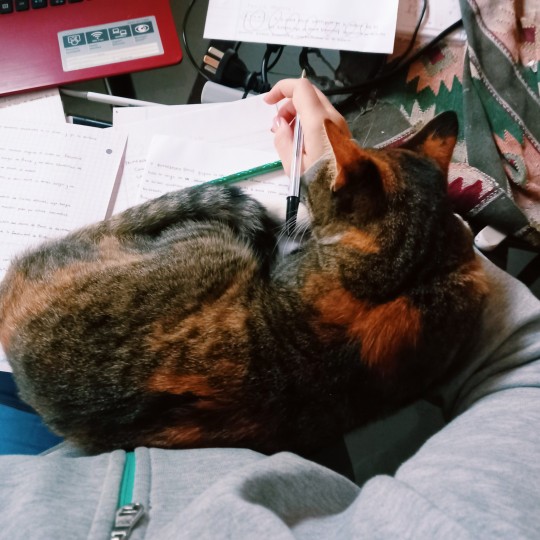

13/100 days of productivity ☆ 110421
last day home........ i think my baby doesn't want me to leave 😭 i missed studying with her sm
#life update#productivity update#studyblr#studyblr notes#stemblr#chemical engineering#kitten situation#cat aesthetic#study aesthetic#studyspo#study space#lifeofthegrind#caffeinestudy#apalsant#jeonchemstudy#heyreags
123 notes
·
View notes
Text
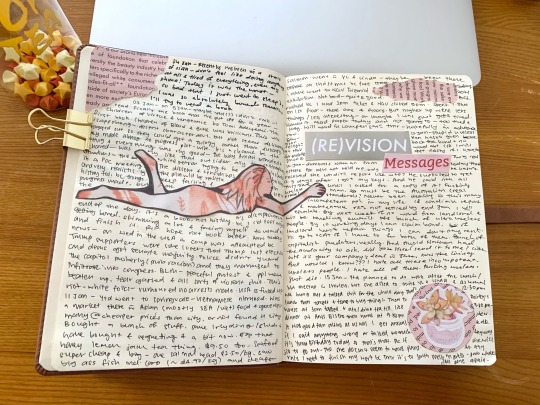
January 2021: Pretty in Pink
#study#studyblr#bujo#astudentslifebuoy#a students lifebuoy#heypat#adelinestudiess#heycoral#heyreags#problematicprocrastinator#heykenzie#gloomstudy#thekingsstudy#philologystudies#stillstudies#boldlystudy
112 notes
·
View notes
Text
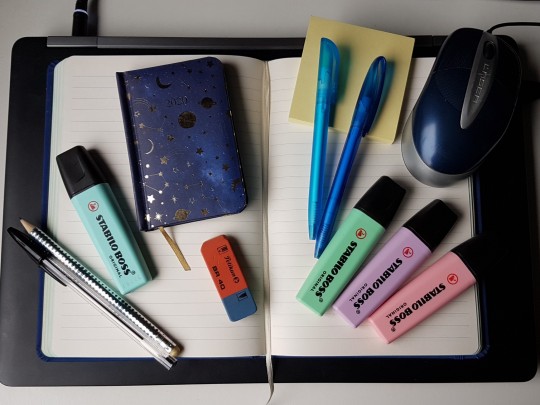
Studyblr Community Challenge: Days 12 - 14
Day 12 - How much time do you spend on studyblr per day on average?
That's quite hard to say! Sometimes I can go days or even a few weeks without tumblr and sometimes I spend up to one hour per day scrolling through studyblr stuff and creating posts. It really depends!
Day 13 - Do you have an ‘aesthetic’? If yes, what is it?
I have many different ones, ranging from dark and goth-y stuff like ravens and old castles to study-related things like books, stationery, study notes, as well as nature photography, paintings and astronomy. The list goes on and on as I see beauty in a lot of things!
Day 14 - What are some of your study essentials?
You can see them in the picture above :) (coffee cup is missing though)!
#studyblr community challenge#original post#studyblr#study#studying#study essentials#stationery#studyspo#study inspo#study inspiration#lookrylie#heypeachblossom#heyreags#study in uk
40 notes
·
View notes
Photo


06.04.20 | 7/100 days of productivity | 2020 quarantine challenge
Mon - Take a picture of your desk/study space
Technically speaking, I don’t have a set study space, usually I work at a different place every day!
More calculus as always, luckily my lovely study partner misty is here to give me motivation!
#studyblr#100 days of productivity#100 days challenge#2020 quarantine challenge#quarantine challenge#santiagonotes#heypat#a students lifebuoy#adelinestudiess#heykidd#obsidianstudy#heyreags#idiotacademia#heygiselle#heyyasi#intellectys#hilunaa#lookrugile#studiovsly
132 notes
·
View notes
Text
🌿New url and new tag🌿
raebae-studies -> sage-studies
#heyreags -> #heysage
Tagging a few ppl that interact regularly: @a-students-lifebuoy @kkul-bee @hippocampus-studies @myhoneststudyblr @nerdinaomi
#i'll still follow heyreags for awhile but i just needed to freshen up the blog a bit#the new theme may or may not be permanent depending on whether i feel like making something better#sage post#i also made my pfp in like 5 mins so it's not the best
16 notes
·
View notes
Text

September thoughts
#studyblr#studyspo#study#a students lifebuoy#bujo#heypat#gloomstudy#bullet journal#einstetic#heyreags#plants#spring#cyclicstudies#heykenzie#lawyerd#heycoral#problematicprocrastinator#stillstudies
224 notes
·
View notes
Text
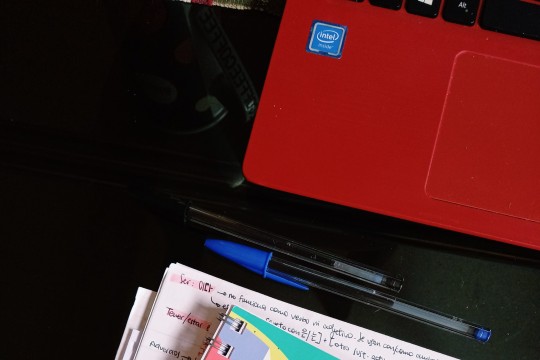

this post is called: "hi i'm bored and on vacation and I PASSED MY MATH EXAM FINALLY now i have like three more to go
i have like a month left until class starts again so i started the first step korean course by yonsei uni on coursera and i love it 100/10 would recommend
#tiny jeon jungkook's voice: FFFINALLYYYYYYY#life update#stemblr#studyblr#langblr#chemical engineering#korean studyblr#korean notes#studyblr notes#studyspo#studyinspo#athenastudying#einstetic#gloomstudy#jeonchemstudy#myhoneststudyblr#pastelandhazelnutcoffee#heyreags#studhde#selkiestudies#lattesforlaura
75 notes
·
View notes
Text

August winter
Insp
#studyblr#studyspo#study#a students lifebuoy#astudentslifebuoy#bullet journal#bujo#heypat#heycoral#thekingsstudy#heyreags#problematicprocrastinator#jessiestudies#gloomstudy#bentostudy
29 notes
·
View notes
Photo
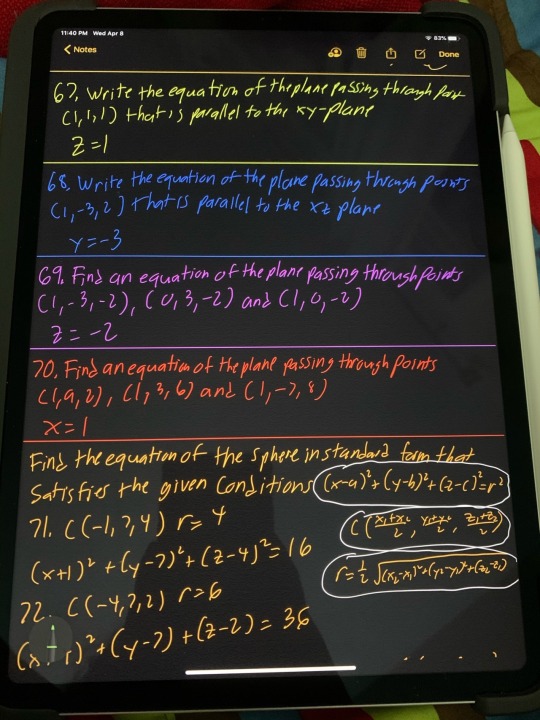

13.04.20 | 12/100 days of productivity | 2020 quarantine challenge
Mon - What is your favourite food to cook or prepare?
I don’t have a particular fave, but making eggs in the morning brings me so much joy ^^ heres a pic of stella, misty, and molly waiting for me to give them some food!
#studyblr#studying#stemblr#mathblr#studynspo#heypat#gloomstudy#grey academia#study-space#heykidd#obsidianstudy#heyreags#idiotacademia#heygiselle#heyyasi#santiagonotes#intellectys#hilunaa
90 notes
·
View notes
Text


Send me gift ideas! Other than soap and candles 😜
#studyblr#studyspo#study#a students lifebuoy#gloomstudy#cyclicstudies#heypat#heycoral#heyreags#lookecho
255 notes
·
View notes
Text


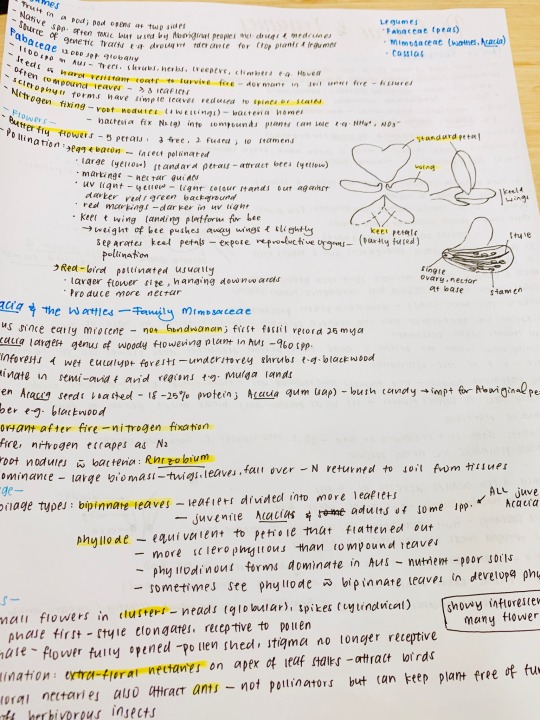

Plants aren't rly my thing but they're still cool 🌾🌾🌾
#studyblr#studyspo#study#a students lifebuoy#heypat#cyclicstudies#gloomstudy#lawyerd#einstetic#einsein#itshannyb#studypool#heycoral#heyreags#thekingsstudy
671 notes
·
View notes
Text

Last of February—
#studyblr#studyspo#study#a students lifebuoy#bujo#bullet journal#cyclicstudies#itshannyb#lawyerd#thekingsstudy#heycoral#studypool#heyreags
121 notes
·
View notes
Text
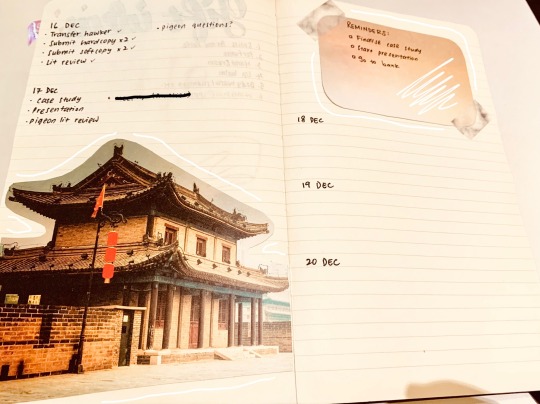
The end is near
#studyblr#studyspo#study#study smart#a students lifebuoy#bujo#heypat#adelinestudiess#gloomstudy#heycoral#studypool#thesmartspo#thekingsstudy#heyreags#cyclicstudies#lawyerd#intellectys
160 notes
·
View notes
Text

I like learning. I don't necessarily like studying.
#studyblr#studyspo#study#study smart#a students lifebuoy#itshannyb#heypat#cyclicstudies#heycoral#gloomstudy#heyreags#lookecho#lawyerd#einstetic
421 notes
·
View notes
Text


Gel pens are my favourites but sometimes I just want to write with a ballpoint.
#studyblr#studyspo#study#a students lifebuoy#heypat#heykenzie#heycoral#lookecho#studypool#lawyerd#gloomstudy#cyclicstudies#heyreags#thesmartspo
195 notes
·
View notes